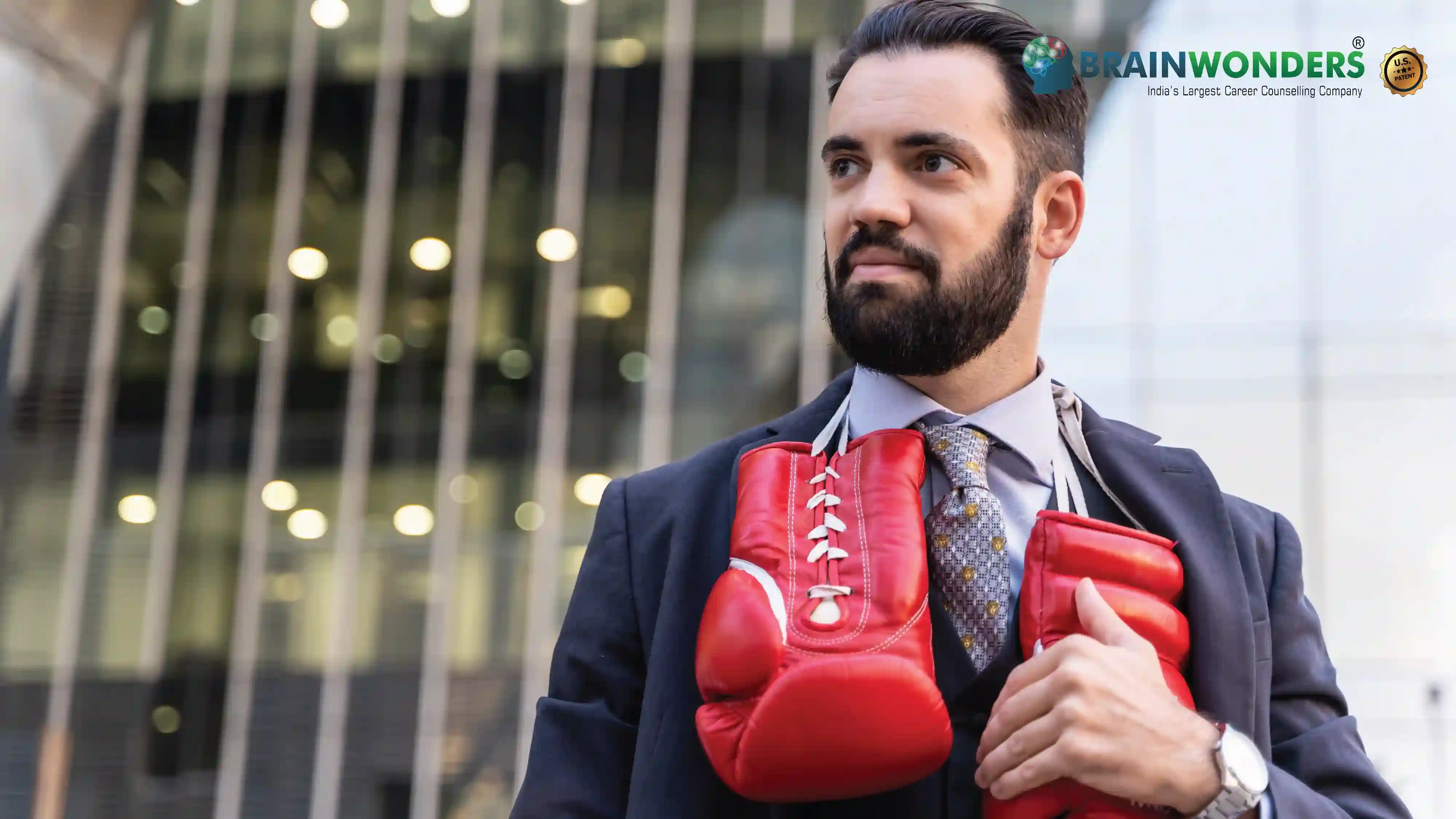How to become a Swimmer
Overview, Courses, Exam, Colleges, Pathways, Salary
.webp)
Overview
Who is Swimmer ?
A swimmer is an individual who engages in the activity of swimming. Swimming is propelling oneself through water using the arms and legs, typically for recreation, exercise, or competition. Swimmers can be of any age and come from various backgrounds. They may participate in swimming as a hobby, for fitness and health benefits, or as competitive athletes.
Swimmers develop their skills in various swimming techniques, including freestyle (also known as front crawl), backstroke, breaststroke, butterfly, and individual medley. They learn proper breathing techniques, body positioning, and efficient movement in the water. Swimmers often undergo training and practice sessions to improve their technique, strength, endurance, and speed.Swimming offers numerous benefits, both physical and mental. It is a low-impact exercise that provides a full-body workout, improving cardiovascular fitness, muscular strength, and flexibility. Swimming is also known for its therapeutic and stress-relieving effects. Additionally, it is a valuable life skill that promotes water safety and may be essential for water-related professions such as lifeguarding or water rescue.Swimmers may participate in recreational swimming, join clubs or teams, or compete in organized swimming events and competitions at local, national, and international levels. Competitive swimmers strive to achieve personal best times, qualify for championships, and represent their country in events like the Olympics or other international tournaments.
Typical day at work
What does Swimmer do?
A swimmer is an individual who participates in the activity of swimming. Here are some critical aspects of what a swimmer does:
- Engages in Swimming: A swimmer actively participates in swimming by entering the water and propelling themselves through it using a combination of arm and leg movements. They may swim for various reasons, including recreation, exercise, competition, or personal enjoyment.
- Develops Swimming Skills and Techniques: Swimmers focus on improving their swimming skills and mastering different swimming strokes such as freestyle, backstroke, breaststroke, and butterfly. They work on refining their technique, body position, breathing, and overall efficiency in the water.
- Participates in Training and Practice: Swimmers undergo regular training and practice sessions to enhance their swimming abilities. It includes pool sessions, drills, endurance training, strength and conditioning exercises, and specialized workouts tailored to their specific goals.
- Takes Part in Competitions: Competitive swimmers participate in competitions at various levels, such as local, regional, national, or international events. They compete against other swimmers in races of different distances and strokes, aiming to achieve personal best times, qualify for higher-level meets, and potentially win medals.
- Sets Goals and Measures Progress: Swimmers set personal goals to improve their performance and track their progress over time. They may focus on achieving faster race times, mastering specific techniques, increasing endurance, or accomplishing other swimming-related milestones.
- Focuses on Physical Fitness and Health: Swimming offers numerous health benefits, and swimmers engage in the activity to maintain and improve their physical fitness. Swimming provides cardiovascular exercise, improves muscle strength and endurance, enhances flexibility, and supports overall well-being.
- Practices Water Safety: Swimmers often prioritize water safety and practice responsible swimming behaviour. They learn essential water safety skills, understand potential risks in different aquatic environments, and follow guidelines to ensure their safety and the safety of others in the water.
- Enjoys the Water: Above all, swimmers enjoy being in the water and the sensation of swimming. They appreciate the freedom of movement, the calming effect of water, and the joy of exploring aquatic environments.
Abilities and Aptitude needed
What are the skills, abilities & aptitude needed to become Swimmer?
Several skills, abilities, and aptitudes are essential for becoming a skilled swimmer. Here are the key attributes needed to excel as a swimmer:
- Water Adaptation: Swimmers should feel comfortable and confident in the water. Being at ease in the aquatic environment and being able to float and move freely are crucial starting points.
- Swimming Techniques: Proficiency in various swimming strokes is essential. It includes freestyle, backstroke, breaststroke, and butterfly. Swimmers must learn proper arm and leg coordination, body positioning, and breathing techniques for each stroke.
- Physical Fitness and Endurance: Good overall physical fitness is necessary for swimming. Swimmers require cardiovascular endurance to sustain prolonged swimming sessions. Building strength, flexibility, and core stability are crucial for efficient and powerful strokes.
- Breathing Control: Proper breathing techniques are essential in swimming. Swimmers must learn to coordinate their breathing with their strokes, ensuring they inhale and exhale rhythmically without disrupting their body position in the water.
- Technique and Form: Developing correct swimming technique and form is crucial for efficient and effective swimming. Swimmers must focus on stroke mechanics, body alignment, and minimizing drag in the water to optimize speed and efficiency.
- Discipline and Persistence: Swimming requires discipline and perseverance. Regular practice and dedication to training are vital to improve skills, build endurance, and refine techniques.
- Mental Resilience: Swimmers often face fatigue, competition pressure, or water conditions. Mental resilience is essential to push through difficult moments, maintain focus, and stay motivated to achieve personal goals.
- Goal Setting and Time Management: Swimmers benefit from setting specific goals and managing their time effectively. It includes planning training schedules, tracking progress, and balancing swimming commitments with other responsibilities.
- Water Safety Knowledge: Swimmers should possess basic water safety knowledge, including understanding water hazards, recognizing potential risks, and knowing appropriate rescue techniques. It ensures personal safety and the safety of others in aquatic environments.
- Coachability and Learning Mindset: A willingness to learn, accept feedback, and make adjustments is vital for improvement. Swimmers should be open to coach instruction, actively seeking ways to refine their technique and enhance performance.
Salary
Salary for Swimmer?
Minimum Income: Most swimmers, especially those starting their careers, may primarily come from coaching or part-time jobs alongside their training. This could result in a more modest income, varying from nothing to a few thousand Indian Rupees per month.
Maximum Income: Elite swimmers who achieve significant success and recognition, participate in top-level competitions and secure lucrative sponsorship deals and endorsements can earn substantial money. Their annual income can range from several lakhs to crores of Indian Rupees.
The earnings of swimmers depend highly on their achievements and reputation in the sport. Top swimmers who participate and excel in major international competitions, such as the Olympics or World Championships, are more likely to attract sponsorships and endorsement deals, which can significantly boost their earnings.
Pathways
How to become an Swimmer?
Entrance Exam
Entrance Exam for Swimmer ?
Courses
Which course I can pursue?
Best Colleges
Which are the best colleges to attend to become an Swimmer?
Industries
Which Industries are open for Swimmer?
Swimmers can find opportunities in various industries related to water-based activities, sports, fitness, and aquatic environments. Here are some industries where swimmers can explore potential roles and opportunities:
- Sports and Athletics: Swimmers can pursue careers in the sports industry, particularly in swimming associations, national governing bodies, or sports clubs. Roles may include professional athlete, swimming coach, swim instructor, sports administrator, or sports event manager.
- Aquatics and Recreation: Swimmers can work in the aquatics and recreation industry, which includes aquatic centres, water parks, resorts, and recreational facilities. Positions may include lifeguard, swim instructor, pool manager, aquatic program coordinator, or water safety specialist.
- Fitness and Wellness: Swimmers can contribute their expertise in the fitness and wellness sector. They can work as personal trainers, swim fitness instructors, aqua aerobics instructors, or wellness coaches, helping individuals achieve their fitness goals through swimming and aquatic exercises.
- Education and Academic Institutions: Swimmers can pursue careers in educational institutions, such as schools, colleges, and universities. They may work as swimming coaches, physical education teachers, or aquatics program coordinators, imparting swimming skills and promoting physical fitness.
- Sports and Swim Apparel Industry: The sports and swim apparel industry offers opportunities for swimmers interested in design, marketing, or sales. They can contribute their insights and experiences as athletes to develop swimwear and sports gear or work in marketing roles focused on swimming products.
- Sports Media and Broadcasting: Swimmers with solid communication and media skills can explore opportunities in sports media and broadcasting. They can work as sports journalists, commentators, analysts, or content creators, providing insights and coverage of swimming events and competitions.
- Sports Science and Research: Swimmers can contribute to sports science research and development, exploring biomechanics, exercise physiology, nutrition, or sports psychology. They can work in research institutions, sports science centres, or academic settings, contributing to advancements in swimming techniques and athlete performance.
- Non-profit Organizations and NGOs: Swimmers can collaborate with non-profit organizations and NGOs focusing on water safety, swimming education, or community development through aquatic programs. They can participate as volunteers, coaches, or ambassadors, promoting swimming skills and water safety awareness.
internship
Are there internships available for Swimmer?
Internship opportunities specifically targeted at swimmers are relatively uncommon. Unlike traditional internships, where individuals gain work experience in a specific field or industry, internships for swimmers are not widely prevalent due to the nature of the sport. However, there are alternative options and programs that swimmers can consider:
- Swim Camps and Training Programs: Various swimming camps and training programs offer opportunities for swimmers to enhance their skills, receive specialized coaching, and immerse themselves in a focused training environment. These programs may provide a structured curriculum, mentorship, and exposure to experienced coaches and competitive swimmers.
- Coaching Internships: Swimmers interested in coaching or working with younger swimmers can explore internships or assistant coaching positions at swimming clubs or aquatic centres. These opportunities allow swimmers to gain experience in coaching techniques, training methodologies, and program management.
- Sports Science and Sports Medicine: Swimmers interested in the science behind swimming and athlete performance can explore internships in sports science or sports medicine. These internships may involve working with biomechanics, exercise physiology, nutrition, or sports psychology professionals, gaining insights into the scientific aspects of swimming and athlete development.
- Sports Administration and Event Management: Swimmers interested in the administrative and management aspects of swimming can consider internships in sports administration or event management. These opportunities may involve assisting in organizing swimming events, managing registrations, coordinating logistics, or working with swimming governing bodies or organizations.
Career outlook
What does the future look like for Swimmer?
Swimming improves coordination, balance, posture, flexibility and alleviates stress. Some injuries and diseases benefit from low-impact therapy. It's a great method to cool yourself during the hot summer months. Swimming is possible in a variety of locations, including pools, beaches, lakes, dams, and rivers. Professional swimmers have no academic requirements. It takes pure natural talent, determination, strength, technique and discipline to thrive in this career.
However there is no fixed salary for a swimmer, they earn their living through sponsorship, endorsements and prize money. The more feasible way to make a living out of swimming is to work as a swimming teacher or instructor at a leisure centre or sports complex. The career is relatively short-lived, and it is often common that they earn a degree in sports science or physiotherapy so that they can find a job in a related field when finished competing.



.webp)

